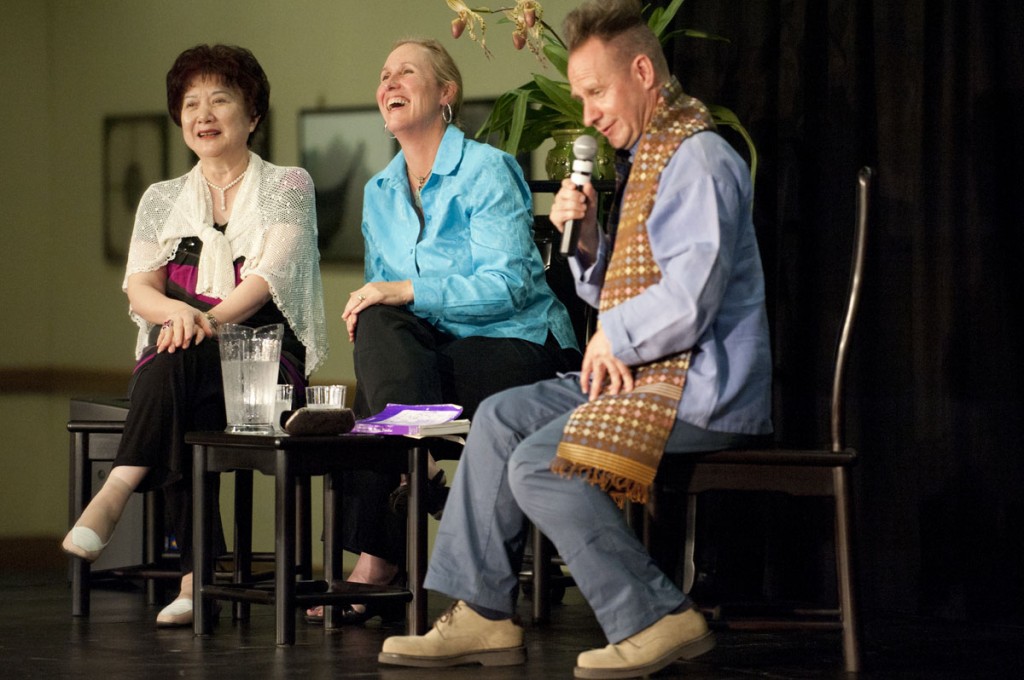
Hua Wenyi (at left) and Peter Sellars (right) discuss their work together. Susan Pertel Jain (center) is executive director of the UCLA Confucius Institute and was responsible for bringing the two together. Bottom: Madame Hua Wenyi (foreground) performs a scene from "Peony Pavilion" with kun opera student Qiaoer Zheng (background). Photo by Martha Benedict.
"There are in Los Angeles a couple of rare and extraordinary treasures in the history of Chinese culture," said director Peter Sellars, in a presentation at The Huntington on Tuesday evening. "One is The Huntington's Chinese garden. The other is this woman."
The woman was Hua Wenyi, an internationally renowned master of kunqu, or Kun opera, with whom Sellars had collaborated in 1999 on an acclaimed production of the 17th-century Chinese opera Peony Pavilion. Sellars and Hua shared the story of that cross-cultural collaboration in an intimate program attended by Huntington members, opera fans, and supporters of Liu Fang Yuan, The Huntington's Chinese garden. You can listen to the program, "Chinese Kun Opera: Peter Sellars and Hua Wenyi in Conversation," on iTunes U.
The pair's informal conversation, full of humor and fond reminiscences as well as insightful commentary, emphasized what Sellars described as the "flowering of cultures that comes from creative collaboration." Both spoke with feeling of the excitement of embracing new ideas to bring fresh interpretations to a traditional art form. The highlight of the program came when Madame Hua dazzled the audience by performing several scenes from Peony Pavilion, sung in Mandarin.
Joining the conversation was Susan Pertel Jain, executive director of the UCLA Confucius Institute, who originally brought Sellars and Hua together in 1990 at the Los Angeles Festival. Qiaoer Zheng, a young Kun opera student from the Asian theater program at the University of Hawaii, joined Madame Hua in one scene. Kunqu flute player Henry Chang provided accompaniment.
In an evening that celebrated the cross-pollination of ideas across centuries, cultures, and generations, gardens were a recurring metaphor for the flowering of hope for the future. Cultivation, not conflict, is the way forward. And the future of America, said Sellars, is being written here in Southern California. Perhaps part of that future has been planted in the Chinese garden. "This community stepping forward and creating this garden is such an image of the future of this country in the most positive, beautiful, and moving way," Sellars said. "And this garden is not just an object; it's actually a living force.... It's alive, it's changing, and it's blooming. It is about the future. It's about seeds that were planted and a vision that will grow."
This event was part of the many Chinese garden programsoffered throughout the year, including lectures, conferences, public festivals, and workshops. The intent of these programs is to actively promote and further an understanding of Chinese culture—landscape, literature, art, and history—as it relates to gardens. "Chinese Kun Opera: Peter Sellars and Hua Wenyi in Conversation" is available for download on iTunes U.
Lisa Blackburn is communications coordinator at The Huntington.
